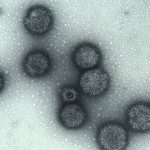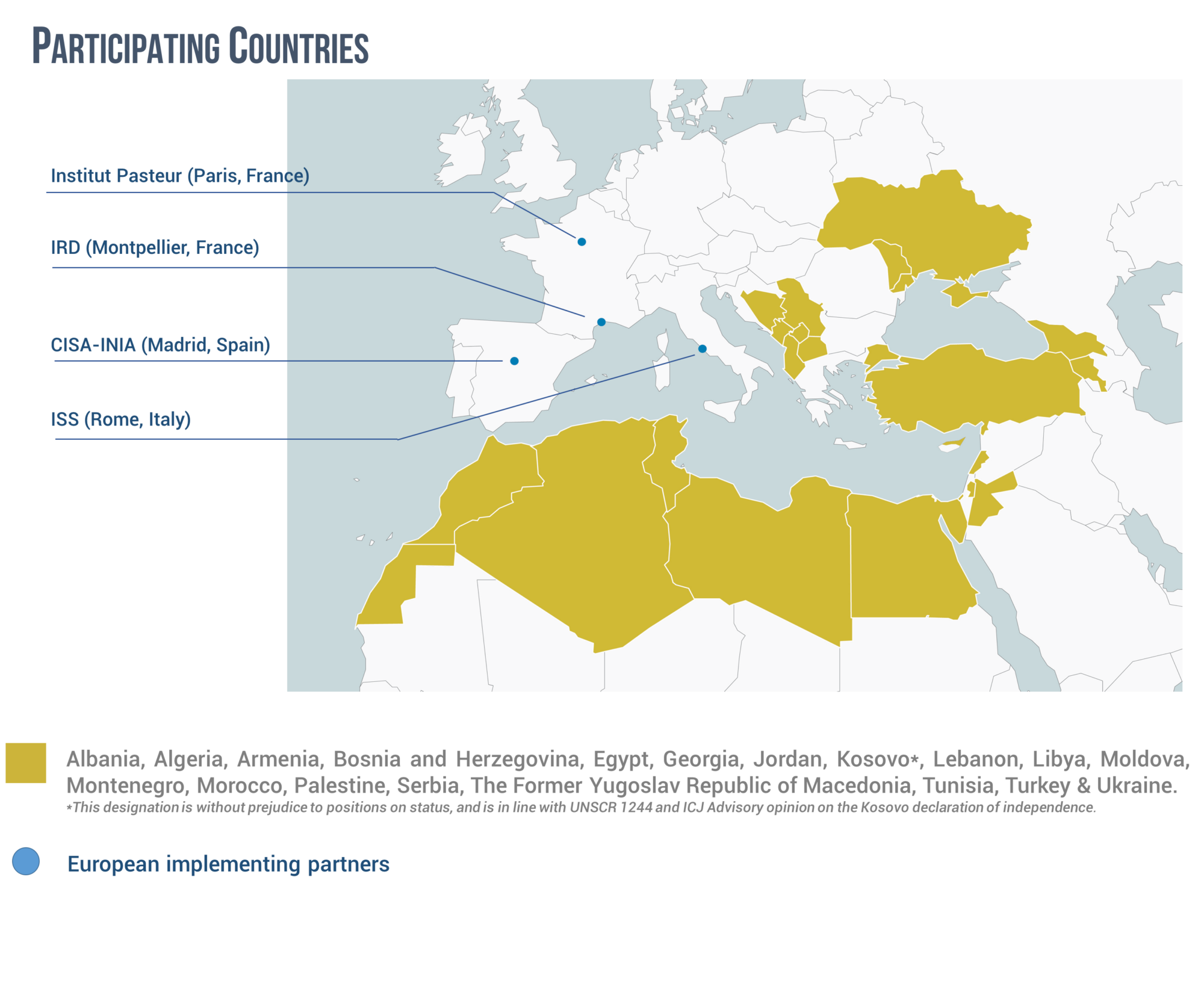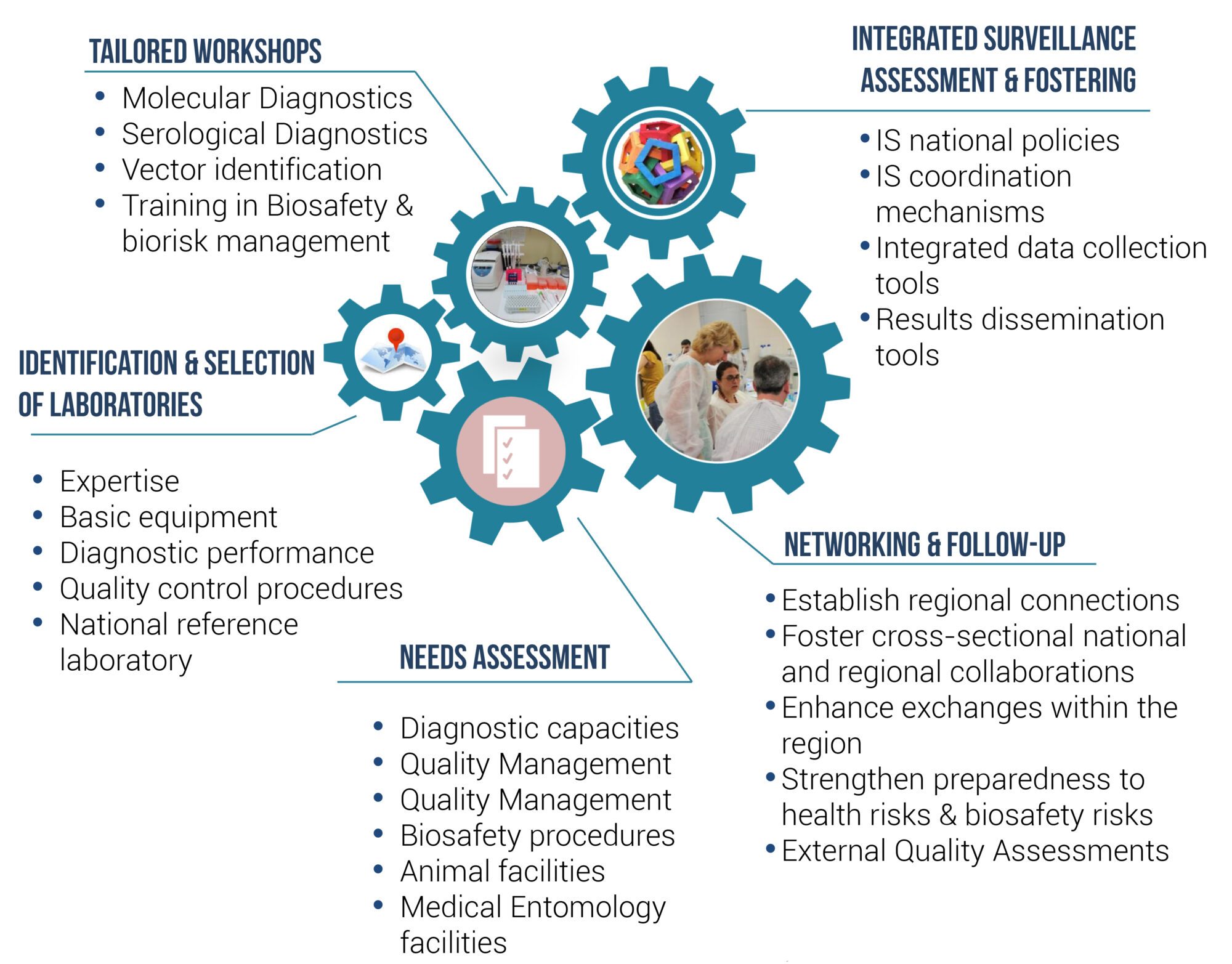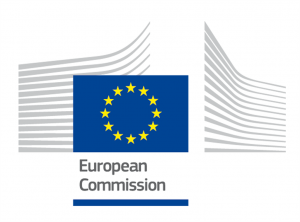About
Preventing vector-borne diseases around the mediterranean and black sea regions by creating a One Health network of laboratories
Countries of the Mediterranean and Black Sea regions share common public health issues and threats.
The MediLabSecure project aims at consolidating a Laboratory Network on the emerging zoonotic viruses.
It represents a cluster for awareness, risk assessment, monitoring and control of vector-borne diseases. This cluster is shaped by the interaction of 4 laboratory sub-networks, one for human health, one for animal health, one for entomology and one for public health reinforcement.
The project is divided into five workpackages each one lead by a working group:
- WP1 aims at the coordination, communication and dissemination of the project.
- WP2 ensures the activities with veterinary laboratories of virology.
- WP3 coordinates the human virology labs and the biosafety activities.
- WP4 is responsible of the medical entomology groups and related activities.
- WP5 is responsible of the public health activities related to the improvement of the integrated surveillance that will enhance the preparedness of beneficiary countries to emerging and re-emerging mosquito transmitted viruses and emerging respiratory viruses.
The interconnectivity between the five different coordination bodies are schematically represented in the following figure: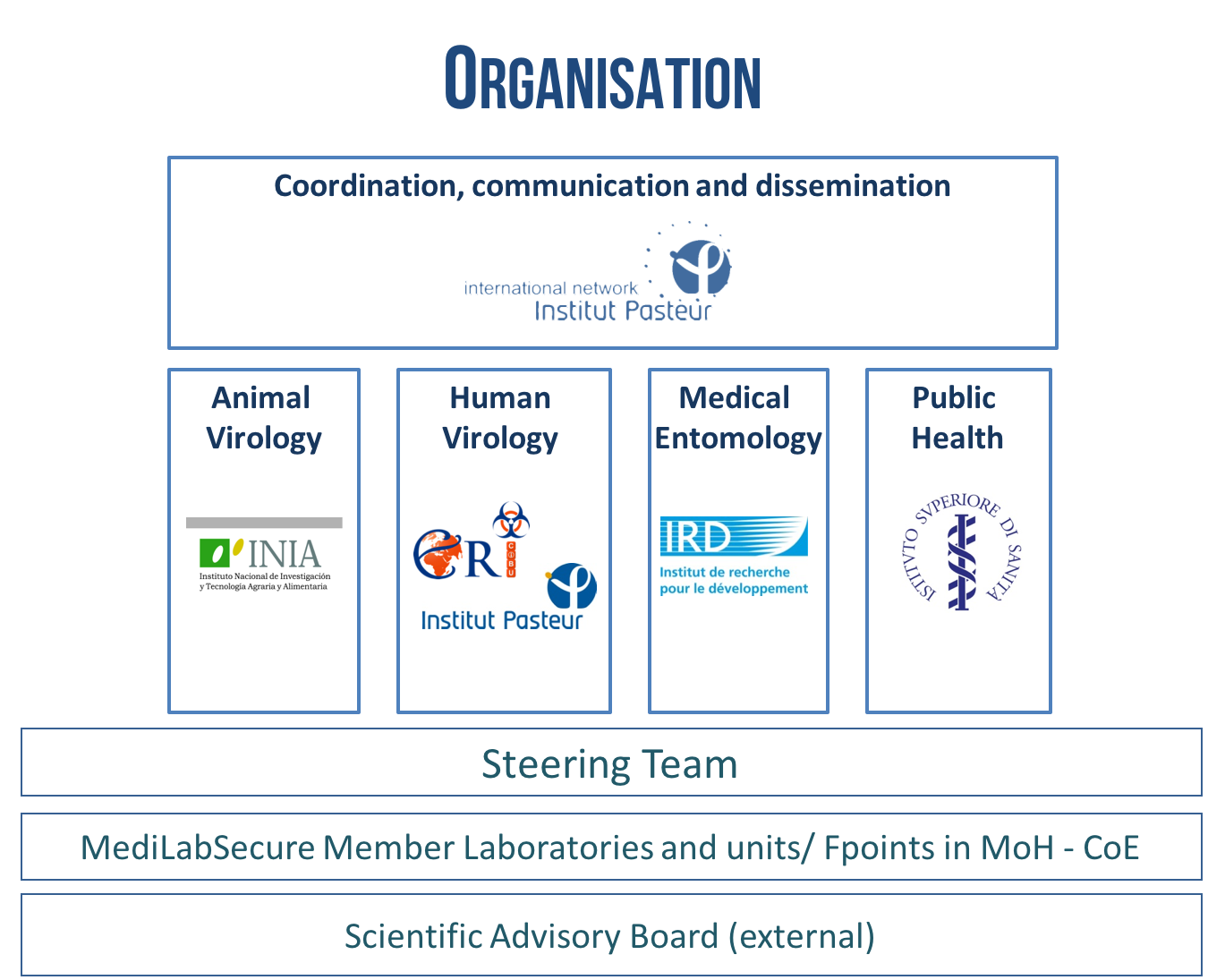
The MediLabSecure network encompasses partner countries around the Mediterranean and Black Sea Regions (19 non-EU countries) by means of a collaborative execution of project activities to address public health-related national needs.
General objectives
- Create a framework for collaboration to improve surveillance and monitoring of emerging vector borne viral diseases (arboviruses)
- Provide training for public health experts in participating countries to increase the communicable disease control in the Mediterranean and Black Sea region.
- Promote knowledge development and transfer of biosafety best laboratory practices
Specific Objectives
Prevent spread of viruses and concerned vectors (mosquitoes and ticks):
- Prevent outbreaks of zoonotic viruses with an existing identified or potential risk in the region (West Nile, Dengue, Chikungunya, Crimean-Congo Haemorrhagic fever, Rift valley fever, …)
- Improve integrated surveillance (animal, human, entomological)
- Provide risk assessment of the different emerging viruses (transmission, spread, human impact…
- Recommend and implement public health measures for control where possible
Methodology
Priority has been given for training activities to those laboratories with both respiratory and arboviral reference activities (human and animal health-related subjects and pathogens) and where possible with specific respiratory virus reference laboratories. A wider laboratory community might be addressed for sharing of protocols, SOPs, information sharing, etc.
Interaction between working groups at the training sessions is fostered and interactive sessions between the different WP leaders, heads of labs are held during project meetings.
Many workshops, training sessions and meetings have already been conducted and are listed under the“events” section of the MediLabSecure website
Work Package 3: Human virology and Biosafety
The MediLabSecure project includes the creation of a network of human virology laboratories which will be based on the Mediterranean Regional Laboratory Network put in place during the EpiSouth plus project (2010-2013).
Pathogens of interest
In line with the animal virology working group, the human virology working group will focus on vector borne‐viruses and emerging respiratory viruses identified as present threats or potential risk of emergence in the Mediterranean and Black Sea regions.
Vector borne-viruses
- Representing a present threat in the region
- West Nile virus
- Crimean Congo hemorrhagic fever virus
- Representing a potential risk of emergence in the region
- Dengue virus
- Chickungunya virus
- Yellow fever virus
- Rift Valley fever virus
Respiratory viruses
- Representing a present threat in the region
- Common cold coronaviruses, seasonal influenza viruses
- Representing a potential risk of emergence in the region
- MERS-CoV
Training in diagnostic methods
One week workshops will be organised in order to provide training regarding best laboratory procedures and techniques for the diagnostic of selected vector-borne and respiratory viruses based on the current needs.
Organisation of external quality assessment studies (EQA)
External Quality Assessment (EQA) studies will be organised subsequently to the training in diagnostic methods in order to assess the quality of laboratory procedures applied by the participating laboratories.
Training in Biosafety
Due to the multidisciplinary nature of the project and network (animal, human) the biosafety modules will be approached in an interdisciplinary way. In countries with specific biosafety training requests, adapted modules will be designed with the possibility of train the trainer approach.
Improving monitoring
This capacity building will enable to investigate the prevalence and characteristics of the viral strains circulating in the human communities of the region.
